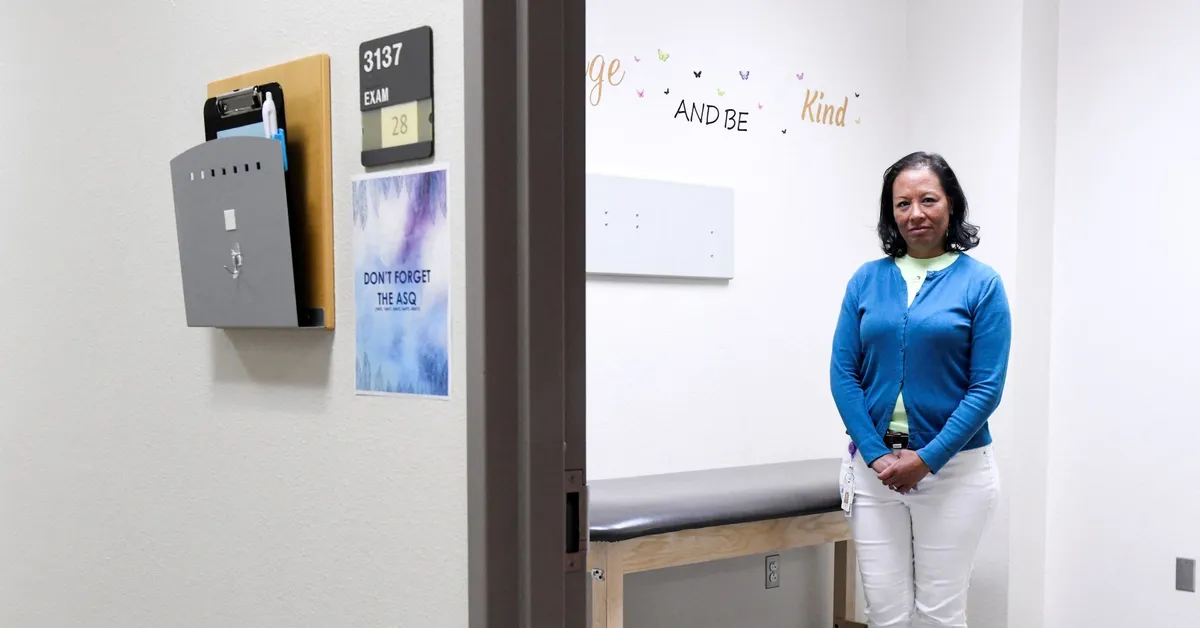
As a measles outbreak continues to spread across West Texas, Dr. Ana Montanez, a dedicated pediatrician from Lubbock, faces the daunting task of educating vaccine-hesitant parents. Despite the overwhelming evidence supporting the safety and efficacy of vaccines, some parents are influenced by misleading information, particularly regarding the use of vitamin A as an alternative treatment for measles.
Dr. Montanez, 53, is working tirelessly to reach out to families who are hesitant about vaccinations. She emphasizes the grave risks associated with measles, a highly contagious disease that many American families have never encountered in their lifetimes. "Even if I can't persuade you to vaccinate, I can at least educate you on misinformation," she stated in a recent interview.
One example of this misinformation involved a mother who was administering high doses of vitamin A to her children, believing it would protect them from measles. This misguided approach was influenced by an article from the Children's Health Defense, an anti-vaccine organization led by Robert F. Kennedy Jr. Although Kennedy has distanced himself from the organization, his past actions and statements continue to influence public perceptions of vaccines.
Experts, including those from the American Academy of Pediatrics, have clarified that vitamin A does not prevent measles and can be harmful in excessive doses. While vitamin A supplementation can reduce the severity of measles in malnourished children in developing countries, such deficiencies are rare in the United States. Dr. Jeffrey Kahn, chief of infectious diseases at Children's Health in Dallas, expressed concern over the resurgence of debates regarding vaccine effectiveness, stating, "We know how to handle measles. We've had six decades of experience."
As of Friday, Texas officials reported that the state's measles outbreak has escalated to 198 cases, with 23 individuals hospitalized. Tragically, this includes the death of an unvaccinated school-age child in Lubbock last month. Meanwhile, New Mexico has recorded 30 cases and one death of an unvaccinated adult. These fatalities mark the first measles-related deaths in the United States since 2015, underscoring the critical need for vaccination.
Among those navigating vaccine hesitancy is a 29-year-old nurse and mother of three, who requested to be identified as Nicole C. She appreciates Dr. Montanez's non-judgmental approach despite her decision not to fully vaccinate her children against measles. Nicole has expressed concerns about potential vaccine side effects and has opted for natural supplements instead. She faces the possibility of her daughter missing 21 days of school if she remains unvaccinated and is exposed to measles.
Despite the risks, Nicole has chosen to delay vaccinations, believing in her family's natural immunity. "As a mom, you naturally think, 'Oh my goodness, I can't let my daughter miss 21 days of education.' But who knows what effects the vaccine could cause?" she reflected. "I'm willing to hold off on the shot."
Public health experts widely agree that vaccines, including those for measles, pose minimal risks and provide essential protection against diseases that once caused widespread mortality. As the flu season intensifies, Nicole has resorted to giving her children a daily dose of cod liver oil, rich in vitamin A, based on advice from fellow parents. However, Dr. Montanez remains optimistic, having successfully persuaded over a dozen families to vaccinate their children in recent weeks. "My hope is that at some point she's going to call me and say, 'Can we go and get the vaccine?'" Montanez said.
As the fight against misinformation continues, the emphasis remains on the importance of vaccination as the most effective means of protecting children from measles and other preventable diseases.